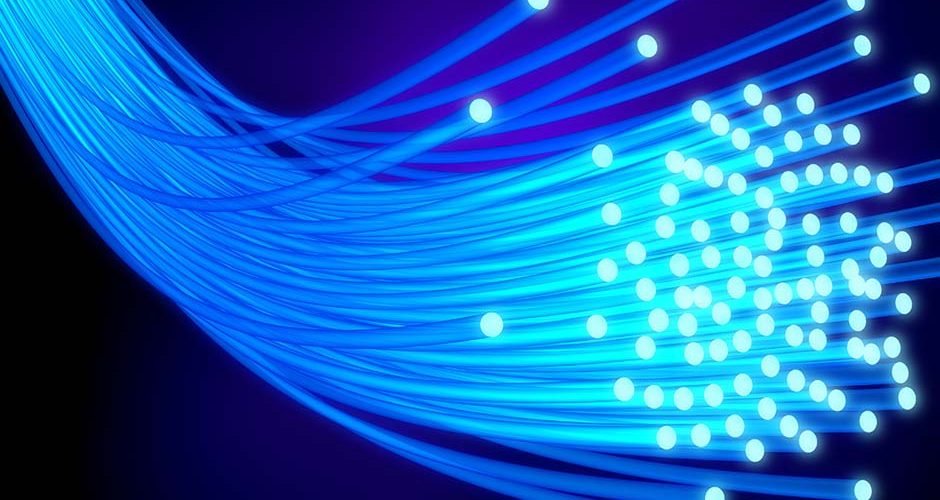The concept of the Quantum Internet represents a revolutionary step in the field of telecommunications. Unlike the traditional internet, which relies on classical bits for data transmission, the Quantum Internet utilizes quantum bits or qubits. This emerging technology, still in its developmental stages, promises to redefine the way we understand and use internet connectivity.
Table of Contents
The Concept of Quantum Internet Cables
Central to this technological evolution is Quantum Internet cable. These are not your average cables; they are designed to carry qubits using quantum states. Unlike conventional cables that transmit information through electrical or optical signals, quantum cables utilize the principles of quantum mechanics, offering a novel approach to data transmission.
Advancements in Quantum Technology
The journey towards a fully functional Quantum Internet is fueled by continuous advancements in quantum technology. Recent years have seen significant breakthroughs, particularly in quantum computing and encryption, laying the groundwork for quantum network infrastructure.
The Mechanics of Quantum Internet
At the core of Quantum Internet technology is the principle of quantum entanglement. This phenomenon allows particles to be interconnected in such a way that the state of one particle instantly influences another, regardless of distance. This principle is what enables the unprecedented speed and security of the Quantum Internet.
Benefits of Quantum Internet
One of the most touted benefits of Quantum Internet is its enhanced security. The nature of quantum entanglement makes it nearly impossible for data to be intercepted without detection. Additionally, Quantum Internet promises significant improvements in speed and efficiency, potentially surpassing the capabilities of current internet infrastructure.
Challenges in Quantum Internet Development
However, the path to Quantum Internet is not without its challenges. Technical hurdles, such as maintaining quantum states over long distances, and the need for substantial funding and resources, are significant barriers.
Global Quantum Internet Initiatives
Globally, there are numerous initiatives and collaborations aimed at developing Quantum Internet technology. Governments and private sectors are increasingly investing in this field, recognizing its potential impact on national security, communication, and commerce.
Impact on Data Transmission and Storage
The adoption of Quantum Internet will radically change the way data is transmitted and stored. It’s poised to bring about a new era for data centers, with enhanced capacities and security protocols.
Quantum Internet and Cybersecurity
In terms of cybersecurity, Quantum Internet introduces a new paradigm. The technology not only offers advanced security features but also raises important questions regarding privacy and data protection in an era of quantum computing.
The Economic Impact of Quantum Internet
The economic implications of Quantum Internet are vast. It’s expected to spur market growth across various sectors, including telecommunications, cybersecurity, and data management.
Quantum Internet and Society
The societal implications of Quantum Internet are also profound. It has the potential to reshape communication, privacy, and even ethical considerations in the digital realm.
Future of Quantum Internet
As for the future, expectations for Quantum Internet are high. The next steps involve continued research and development, with a focus on overcoming current limitations and moving towards practical applications.
Quantum Internet in Popular Culture
Quantum Internet has also captured the imagination of popular culture, often portrayed as the next frontier in connectivity. However, there remains a gap between public perception and the actual scientific and technological realities.
Comparative Analysis with Traditional Internet
When compared to traditional internet, Quantum Internet stands out in terms of security and potential speed. However, it also faces unique challenges and is currently less developed in terms of widespread practical application.
Let’s delve into a comparative analysis between Quantum Internet and Traditional Internet, focusing on their key differences, benefits, and limitations.
Comparative Analysis: Quantum Internet vs. Traditional Internet
Technology Basis:
- Traditional Internet: It operates on classical computing principles, using binary data (bits) for communication. Data is transmitted via electrical or optical signals through cables like copper or fiber optics.
- Quantum Internet: Uses quantum bits or qubits for data transmission. It relies on quantum states and phenomena like quantum entanglement and superposition, allowing for potentially faster and more secure communication.
Data Transmission and Speed:
- Traditional Internet: Speed is limited by factors such as bandwidth and signal degradation over distance. It’s also influenced by the physical infrastructure and network congestion.
- Quantum Internet: Theoretically, it can achieve much higher speeds due to the nature of quantum mechanics. Quantum entanglement, for instance, allows for instant communication over long distances, potentially surpassing the speed limitations of traditional internet.
Conclusion
The Quantum Internet, with its groundbreaking approach and potential, is set to revolutionize our connectivity. As we stand on the brink of this technological leap, it is crucial to understand both its immense possibilities and the challenges that lie ahead.





